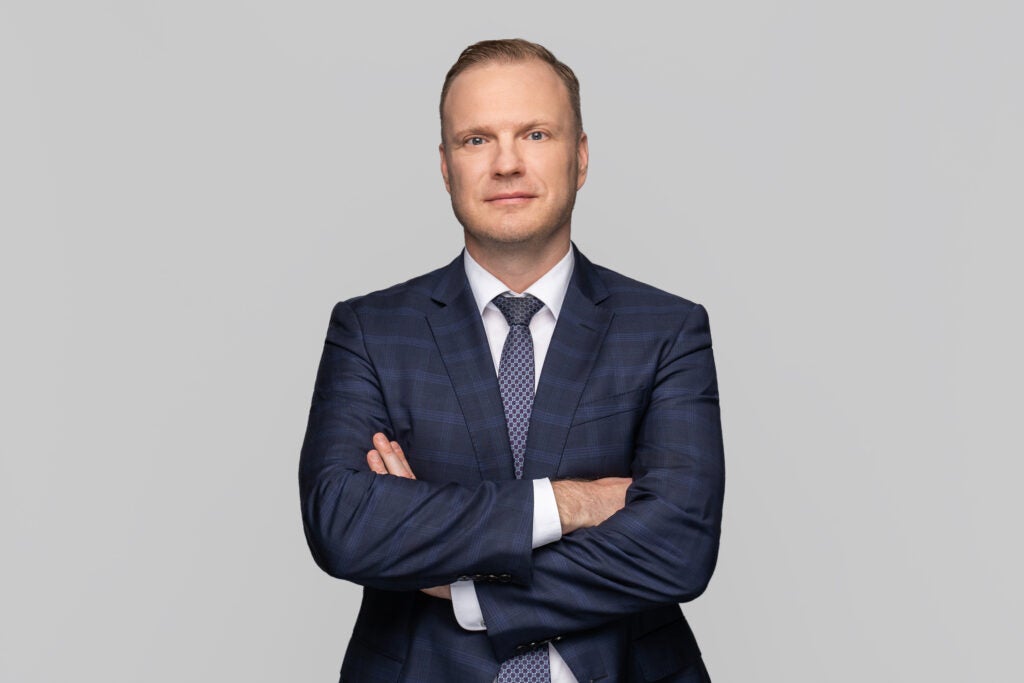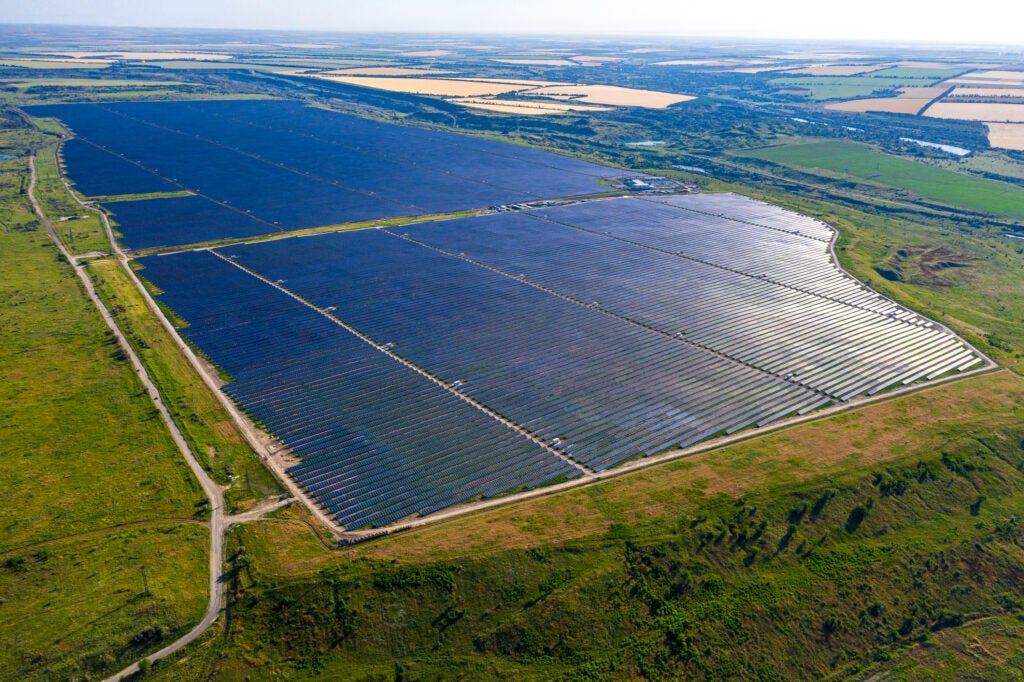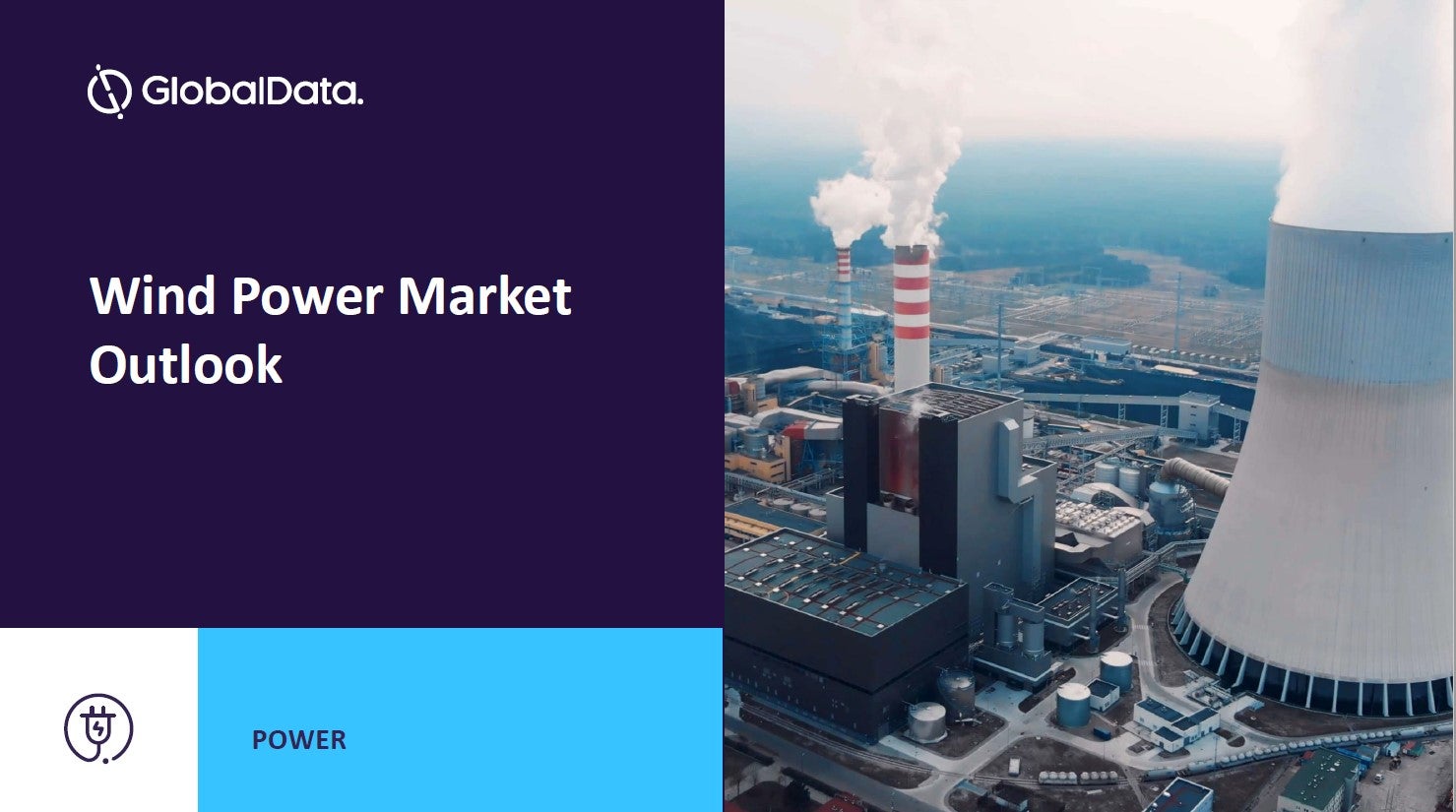
In Ukraine, the power sector lies caught between the old flames of fossil fuels and the investment brought by green power. These competing forces represent the governance risk faced by all investors, and the more unique problems of a country caught between Russia’s gas and the EU’s energy transition.
Ukraine’s renewables industry was born again in 2020, after previous energy payment mechanisms almost collapsed. A new system intended to bring stability to the sector and make it more affordable for grid operators. However, recent allegations have cast doubt on the new power ecosystem in Ukraine.
How well do you really know your competitors?
Access the most comprehensive Company Profiles on the market, powered by GlobalData. Save hours of research. Gain competitive edge.

Thank you!
Your download email will arrive shortly
Not ready to buy yet? Download a free sample
We are confident about the unique quality of our Company Profiles. However, we want you to make the most beneficial decision for your business, so we offer a free sample that you can download by submitting the below form
By GlobalDataThe country’s largest renewable energy producer alleges that a state-owned company has withheld payments from it as part of a “deliberately political move”. The company, DTEK Renewables, says that this has damaged its opportunities and could threaten the wider renewable market in Ukraine. We spoke with DTEK Renewables CEO Maris Kunickis about this story of risks in Eastern Europe.
The Ukrainian energy crisis
In 2018, renewables generated 5% of Ukraine’s energy, according to the IEA. In 2019, this jumped up to 9%, although Ukrainian statistics show net renewable generation to have fallen in this time. Over a longer term, the country’s declining population will further supress demand.
Still, Kunickis considers 2019 to be a boom time in Ukrainian renewables. His company, part of the larger DTEK group, operates 1GW of renewable capacity in the country with 0.5GW currently under construction.
“2019 was the first year when we saw huge, tremendous growth in renewables,” said Kunickis. “In that year, Ukraine’s installed renewable capacity rose from 3GW to 6.3GW. In one year, capacity doubled, and the support system wasn’t prepared for it.”
Before 2020, Ukraine’s feed-in tariff provided some of the most lucrative payments in Europe, paying approximately $170 per MW of installed solar generation, and more than $110 per MW of installed wind generation. Ukraine aims to generate at least 25% of its power from renewable sources by 2035. However, even in 2020, its renewable power payment system could not keep up with the pace of change.
“In 2020 we hit the bottom, because we received just 5% of due payments by the middle of the year,” continues Kunickis. “After this, we and the energy community talked to the government to seek a better deal together. It was a big consensual compromise; I haven’t seen such a compromise anywhere else in Europe to be honest. We agreed we could live with it.”
The government promised to cover its historical debts, but it would also lower feed-in tariff returns. This brought feed-in tariffs for newly commissioned solar projects down to more than $120 per MW in 2020. In later years this will fall further, while newly-commissioned wind projects will see a static 10% reduction. This brings wind project tariffs to just over $100 per MW.
Kunickis says: “We agreed to this, then immediately after the new law was submitted, we saw reduced returns in our tariffs. But the government has still not fulfilled their obligations to us.”
“This is definitely discrimination”
From 2020, a change in Ukrainian law made power auctions mandatory for renewable generators in most situations. These took place via a state-owned company named Guaranteed Buyer, which also took responsibility for administering the feed-in tariff. In order to tackle the historic debt of renewable generators, Guaranteed Buyer issued environmental, social and governance bonds on behalf of transmission system operator Ukrenergo for future repurchase. In November 2021, the company had rebought these for all but one power producer.
DTEK Renewables publicly alleged that an instrument of the Ukrainian Government had withheld funds owed to the company, and the company now plans to take the government to an international court over the payments.
“We know that $670m (UAH18.3bn) has been paid to Guaranteed Buyer,” says Kunickis. “From that, $600m (UAH16.3bn) has paid to all renewable generators except us. Our debt is now close to $110m (UAH3bn). This is our money, held by Guaranteed Buyer, designated only for us.

“We know the only unpaid companies are our seven companies [the DTEK Group],” he continues. “This made us suspicious, so we sent a lot of letters; to Guaranteed Buyer, to the regulator, to the business ombudsman, and to Oschadbank [which holds the money]. We still do not have proper answers for why this is happening. This is definitely discrimination without any reason.”
Since going public with the dispute, DTEK Renewables’ has seen its credit rating fall from B- to CCC+. Standard & Poor Global Rating agency wrote that it sees “increased risk for the collection of [the bonds] due to the energy crisis in Ukraine and the recent statement of the President of Ukraine”.
DTEK has made it very clear who they blame, with company statements calling the non-payment a “deliberately political move”.
The Ukrainian approach to power generation
For its part, the Government of Ukraine has committed to the energy transition, aiming to phase out coal by 2035. As Europe’s third largest coal burner, this change will tie into the country’s mid-term renewables goals and its political alignment with European power grids. Ukrainian politicians have moved to align the country with EU energy policy, fearing the effects that carbon trade tariffs would have on the country.
At the same time, the country remains reliant on gas shipments from Russia, both for consumption and transit through the country. The Russian ruling party’s aggressive negotiations over gas contracts, the Nord Stream 2 pipeline, and geopolitics have therefore directly influenced Ukraine’s approach to the energy transition.
Kunickis says that while Ukraine was “in a bad position” concerning renewables, this has now improved. “This is the biggest question also from my side,” he said, when asked about the Ukrainian Government’s views on renewables.
“Our president was at COP26 in Glasgow, and said, yes, Ukraine will also follow the European direction in of renewable development. But what’s going on now could demolish all trust in the renewable sector.
“So far, I would say, it has been very difficult to attract financing for projects in Ukraine, because it's high risk. We were successful with this in 2019. But last year, we know that a lot of renewable sector players are struggling to take up good projects, because they cannot attract the financing. This is because of distrust. And now, with this money, I assume that trust will decrease even more.”

The risks of Ukrainian renewable power projects
In most countries, news from Ukraine often relates to its border with Russia. This area regularly sees smaller conflicts with rebel groups, and with the looming threat of government troops building up on the border, the geopolitical situation remains tense.
However, Kunickis says these are risks that developers can plan around. “If we are considering where to place new power plants, of course we take this into consideration,” he continues. “But the consideration is not to not do the project, it’s to do the project in another part of the country.
“Of course the border situation is escalating, and there’s always a lot of new stories. As a pragmatic man, I consider this, but only from a geographical point of view.”
But for international investors, geography presents a question with no easy answer. If other nearby countries with similar markets have less governmental and geopolitical risk, then why choose Ukraine? Kunickis says that he can understand why many investors look toward areas such as the Balkans or Romania.
“We see this risk,” he says, “and this is our biggest issue. Now, the government is not creating the proper environment for attracting investors in the renewable sector.
“Looking from another view, Ukraine has very good potential for renewables. We have good solar irradiation and a good wind speed. Most importantly, we have a lot of land to deploy it on, and this is not possible in much of Europe. But these possibilities cannot be realised because the companies cannot attract financing for projects.”
As with most project financing decisions, everything comes back to risk. As far as DTEK Renewables is concerned, $157.8m (UAH 4.3bn) would provide greater security to its upcoming projects and Ukrainian renewable development as a whole.
However, the DTEK group operates multinationally, and Kunickis has said the company has started considering its options in other countries. So what is DTEK’s answer to the international investor’s question? Why Ukraine?
Kunickis said: “We are still receiving our feed-in tariff, and so far we haven’t decided to stop or postpone our typical project construction. We are still financing this. We still hope that the government will solve the problem and pay, because they can not do anything else with the money.
“Some weeks ago we were looking at greenfield projects based on new funding mechanisms, like corporate power purchase agreements or price matching. But then we didn’t receive payment, and we put a little stop on out plans.
“To be honest, we are already looking to development in Europe. But today, we are not taking these decisions because we still believe in Ukraine. But this belief is decreasing for each week we aren’t paid.”




